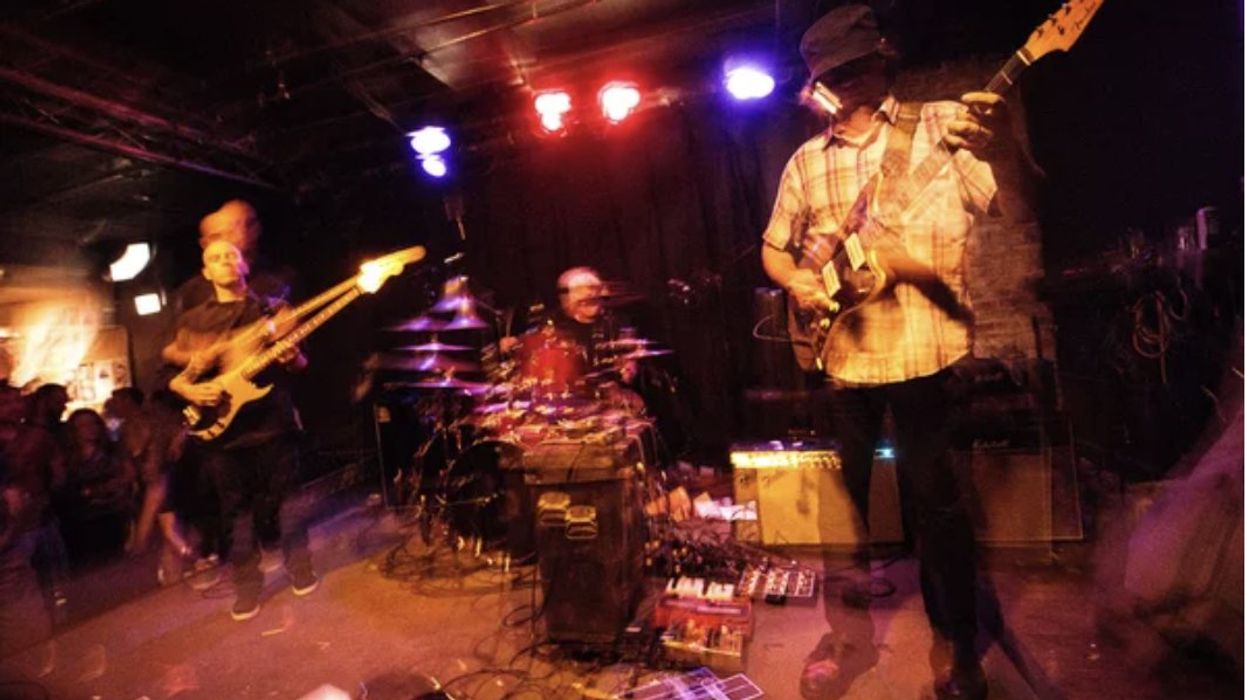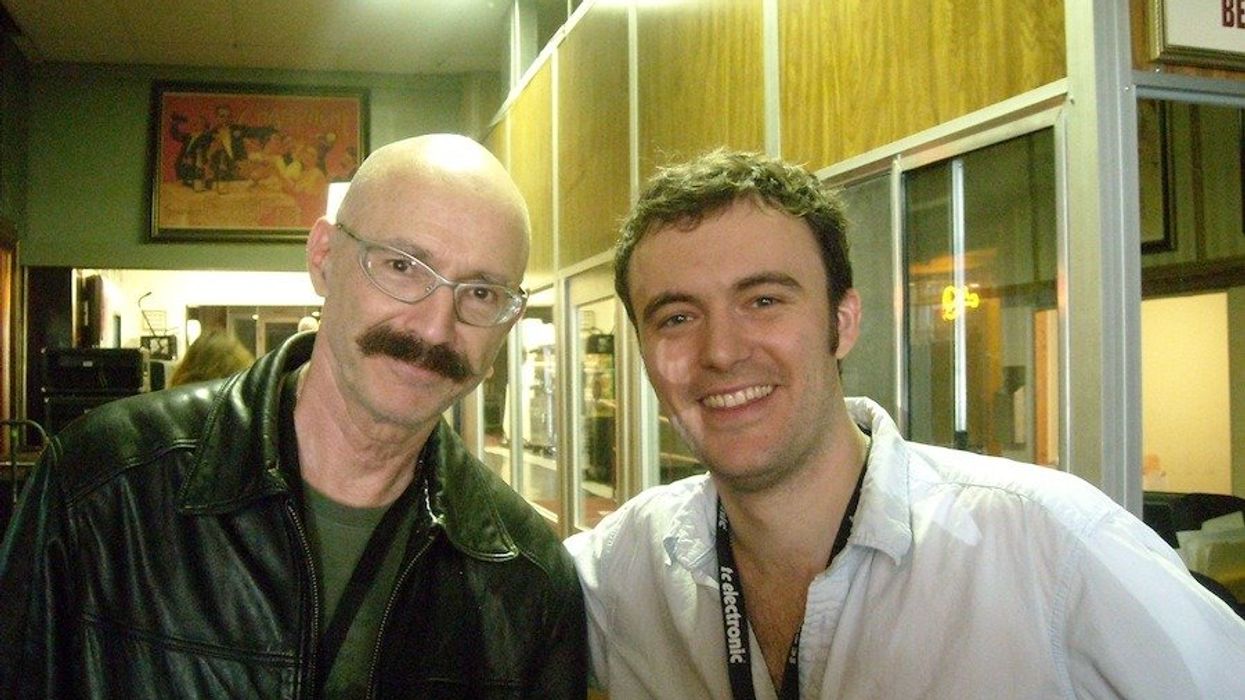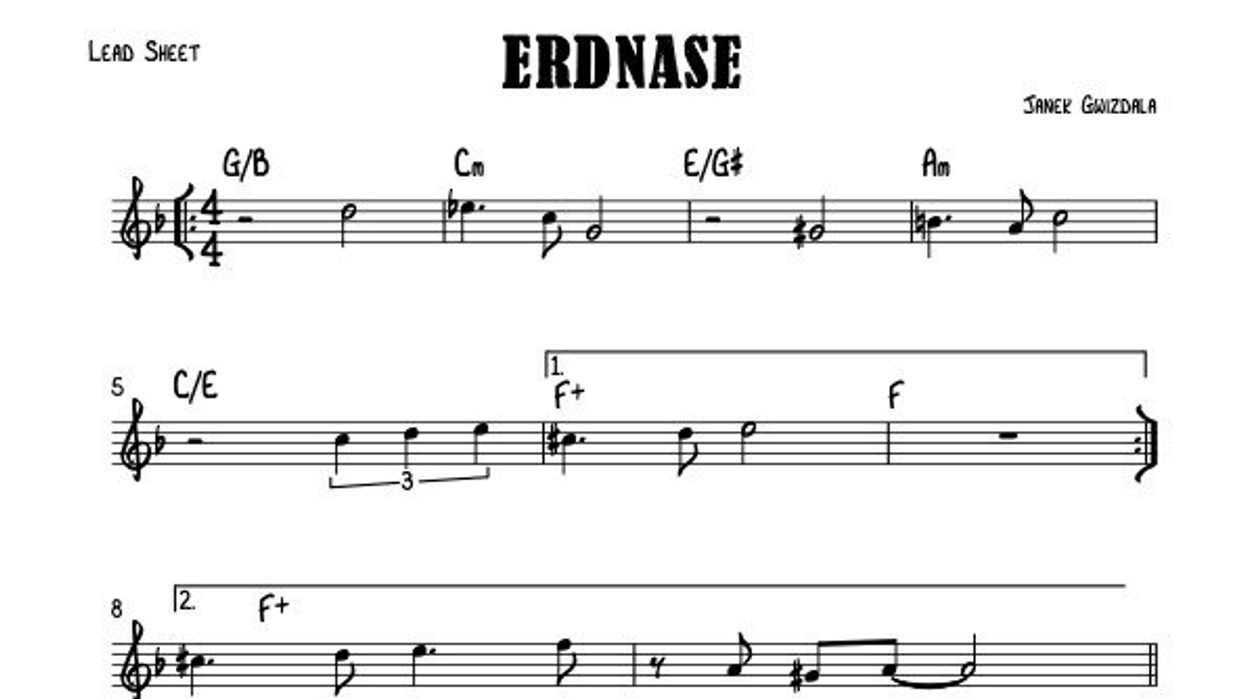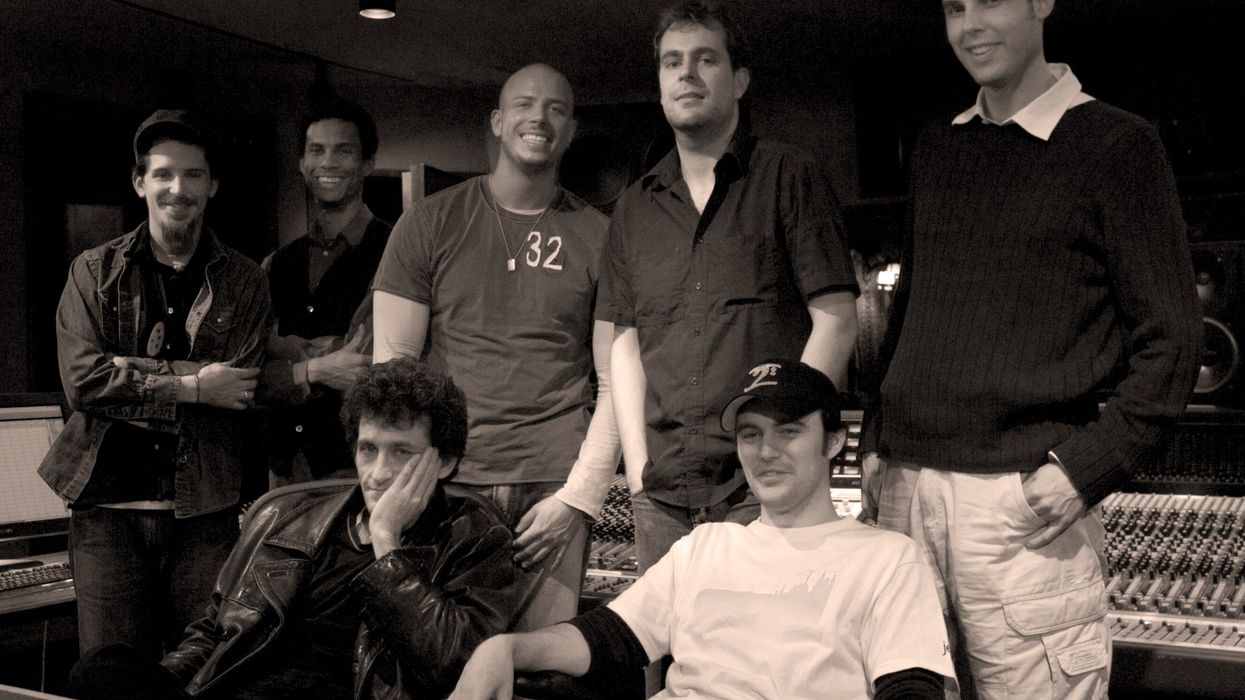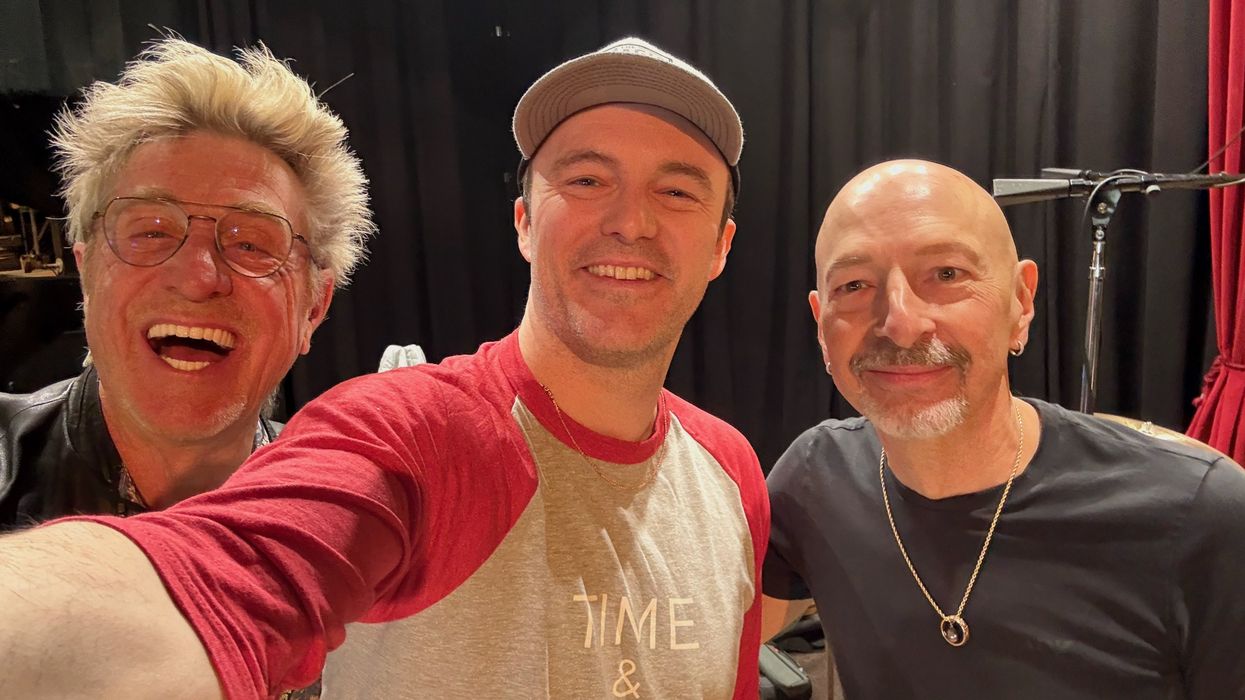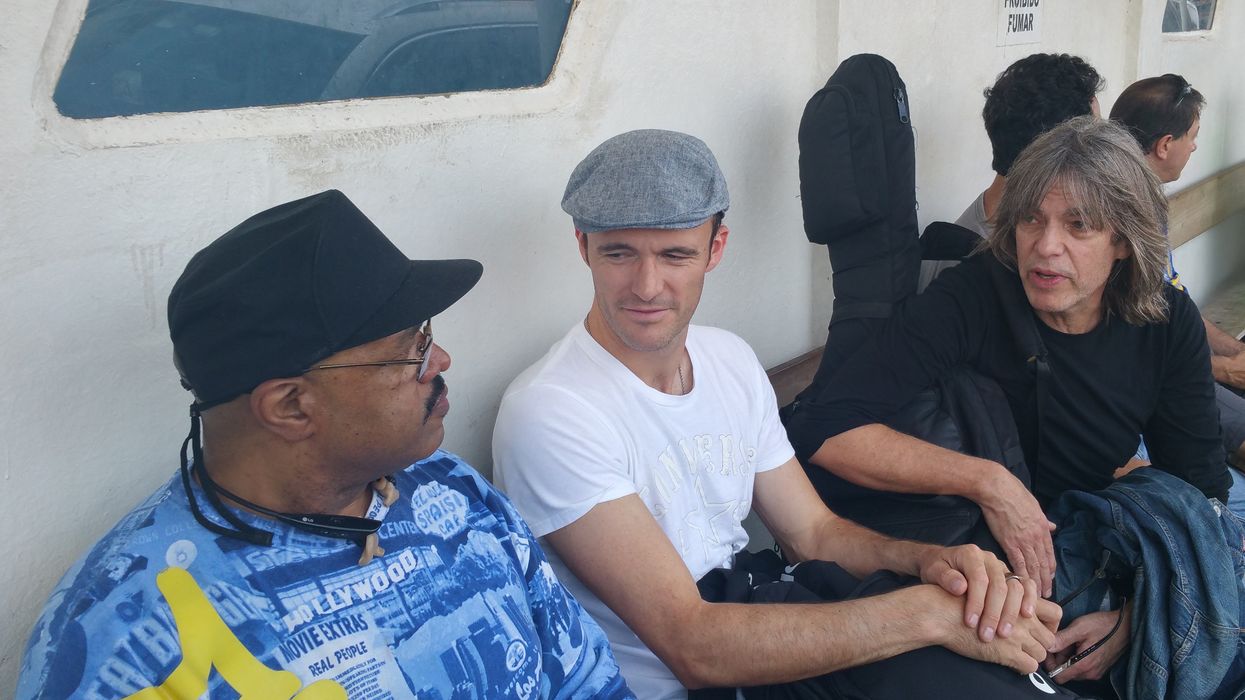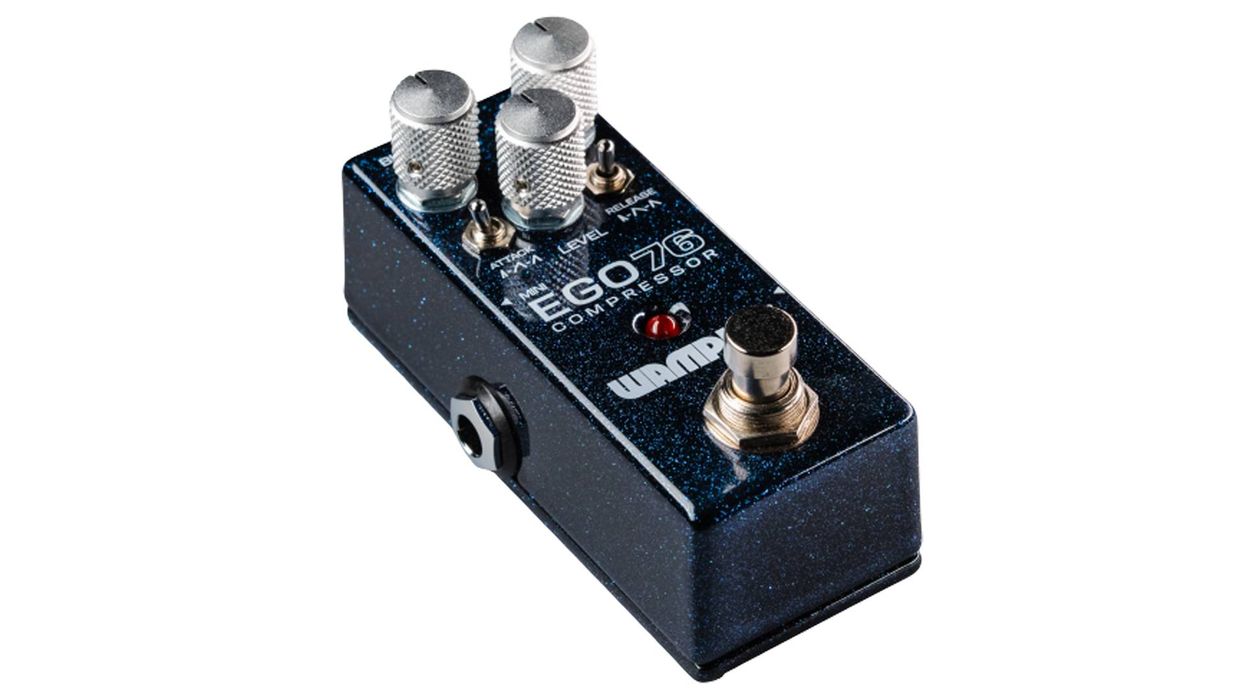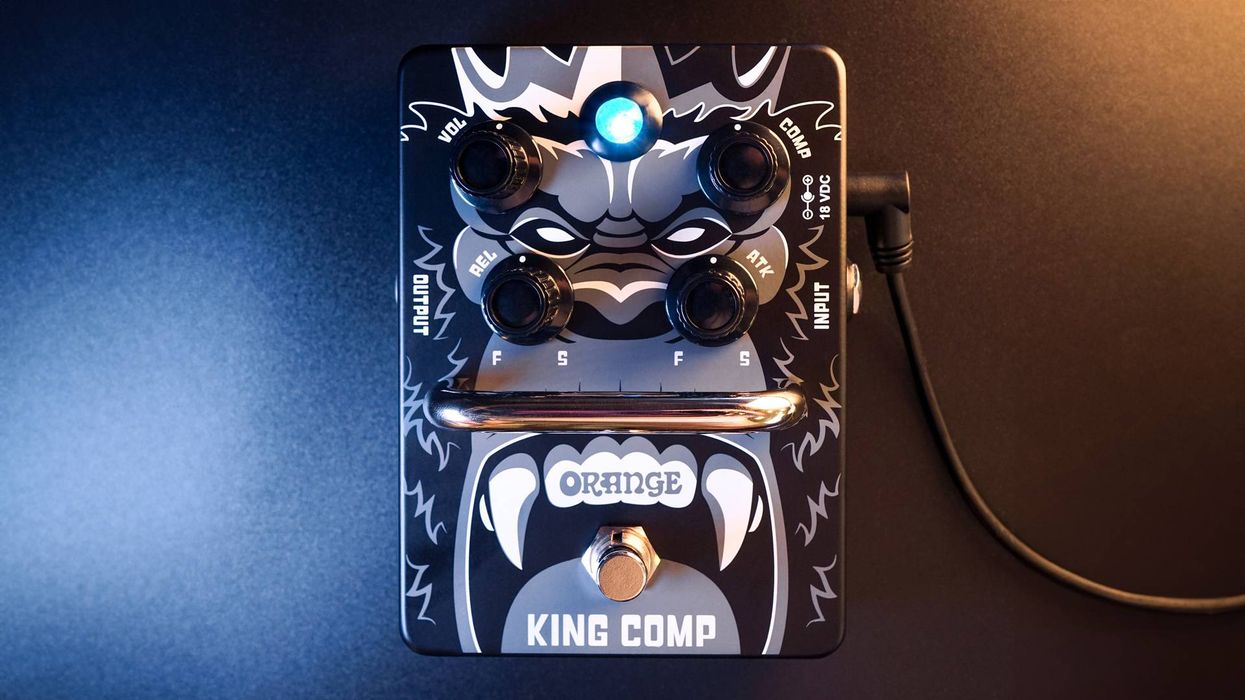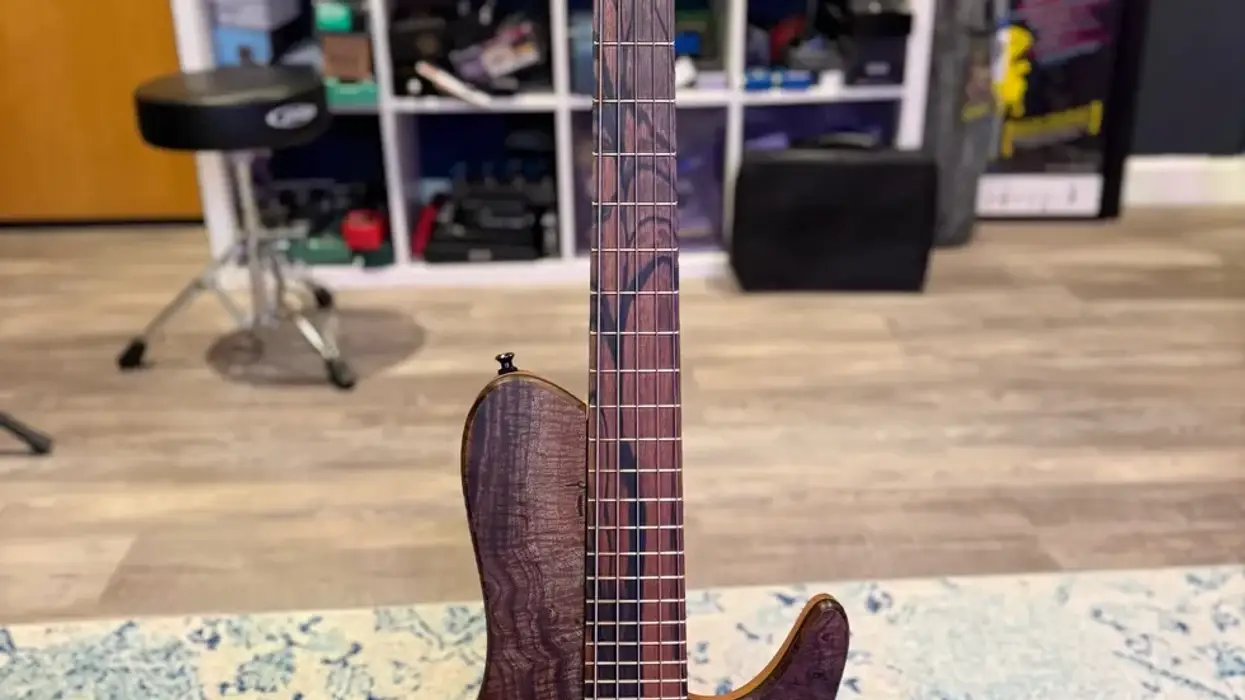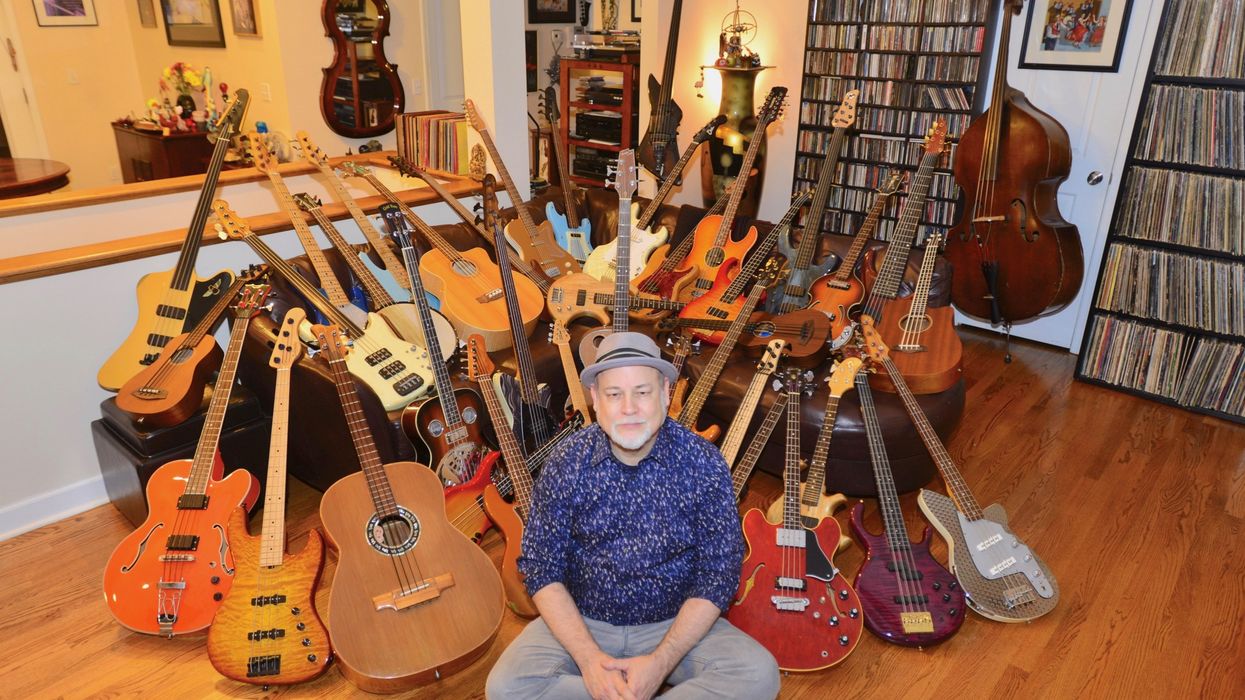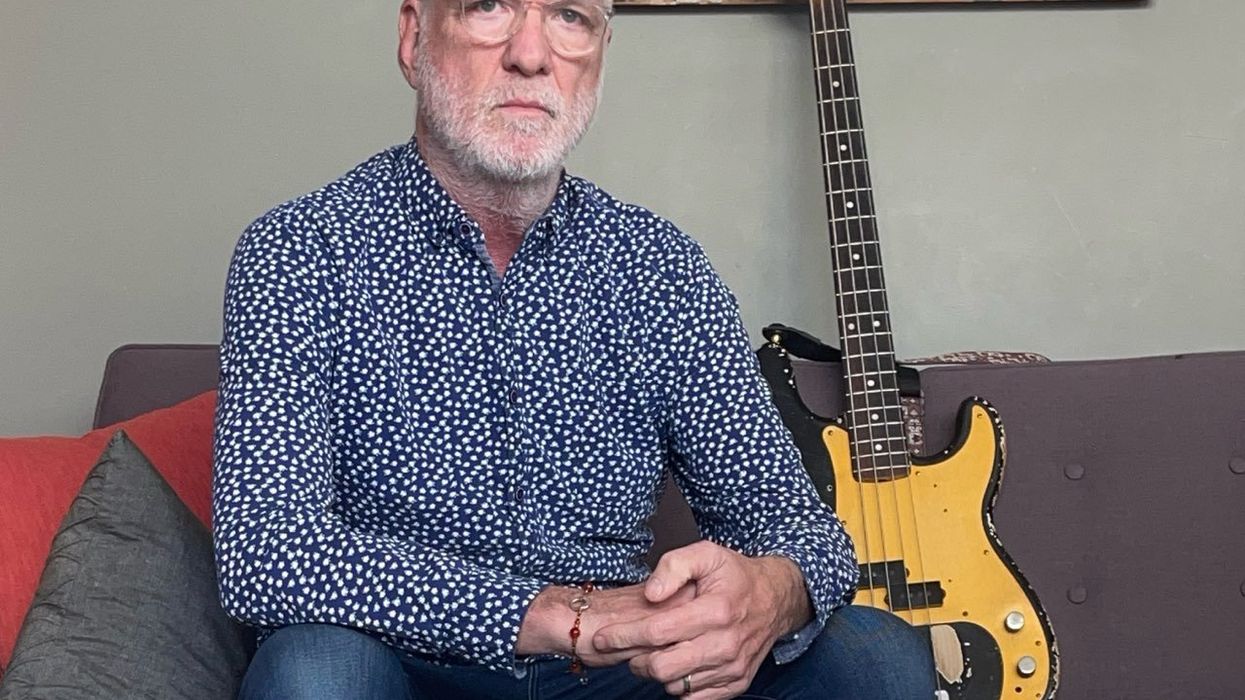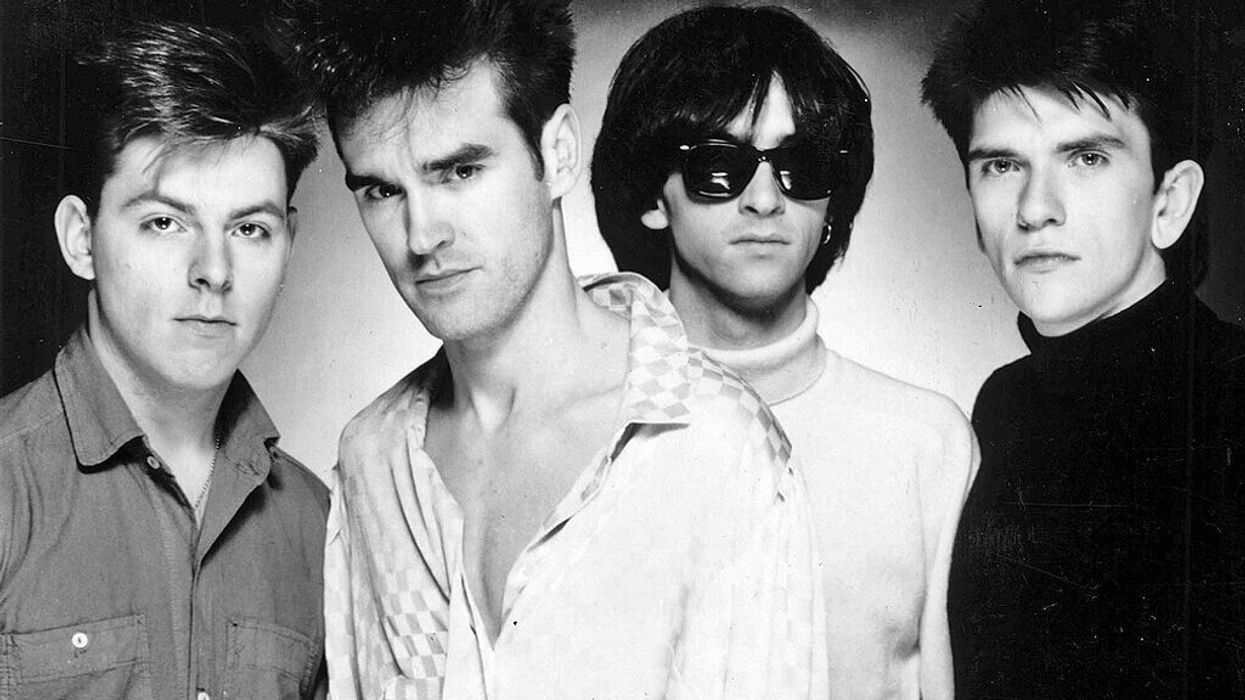Although it’s been years since the beginning of the pandemic, many monumental things can still be explained in a single phrase: It all started because of Covid. One of those is that you can take online bass lessons from Joe Lally, bassist and co-founder of Fugazi, the unyieldingly indie post-hardcore band that raged out of Washington, DC’s ever-vibrant punk scene. From 1987 to 2003, over the band’s six studio albums, assorted EPs, and hundreds of live shows, Lally demonstrated his utter mastery of intense, full-throttle bass playing and writing.
So you might be surprised to learn that such an accomplished low-ender didn’t always feel confident about his own musical knowledge. “I spent all that time in Fugazi not formally being able to articulate about music very well with the other people in the band,” Joe says. “It was very frustrating at times. There were times I wanted to leave the band because it felt like I couldn’t even talk about what I wanted to do.”
It was only after Fugazi went on indefinite hiatus that, realizing he wanted to keep making music, Joe decided to get some education. “I took a few lessons at Flea’s school in L.A., the Silverlake Conservatory. I studied with Tree, the dean of the school, who showed me some things about songwriting on piano. I was looking at it like I was getting piano lessons, but really he was showing me the sound of major, the sound of minor, and the sound of the dominant 7 chord. Those three chords are the basic beginnings of learning music theory.”
As Joe learned it, the major sound was “Here, There, and Everywhere" by the Beatles, the minor was Santana’s “Evil Ways,” and the dominant 7 was “I Feel Good” by James Brown. “I learned to play those chord changes on piano, and came to understand more about songs and completing my own song ideas.”
Joe mainly learned by asking questions. “To a degree, that’s what I want people to get from the lessons I give,” he continues. “There’s so much you can go into theory-wise, but you don’t really need to to be able to write music, play music, and figure out other people’s music.”
Joe went on to write and release three solo albums, as well as two with Ataxia, his project with Red Hot Chili Pepper guitarists John Frusciante and Josh Klinghoffer. In 2016, he formed instrumental jazz-punk fusion trio the Messthetics with Fugazi drummer Brendan Canty and genre-spanning guitar virtuoso Anthony Pirog. They’ve since toured heavily and released three full lengths. He also joined Ian Mackaye—Fugazi’s and the Evens’s singer-guitarist—along with Evens drummer Amy Farina to form Coriky.
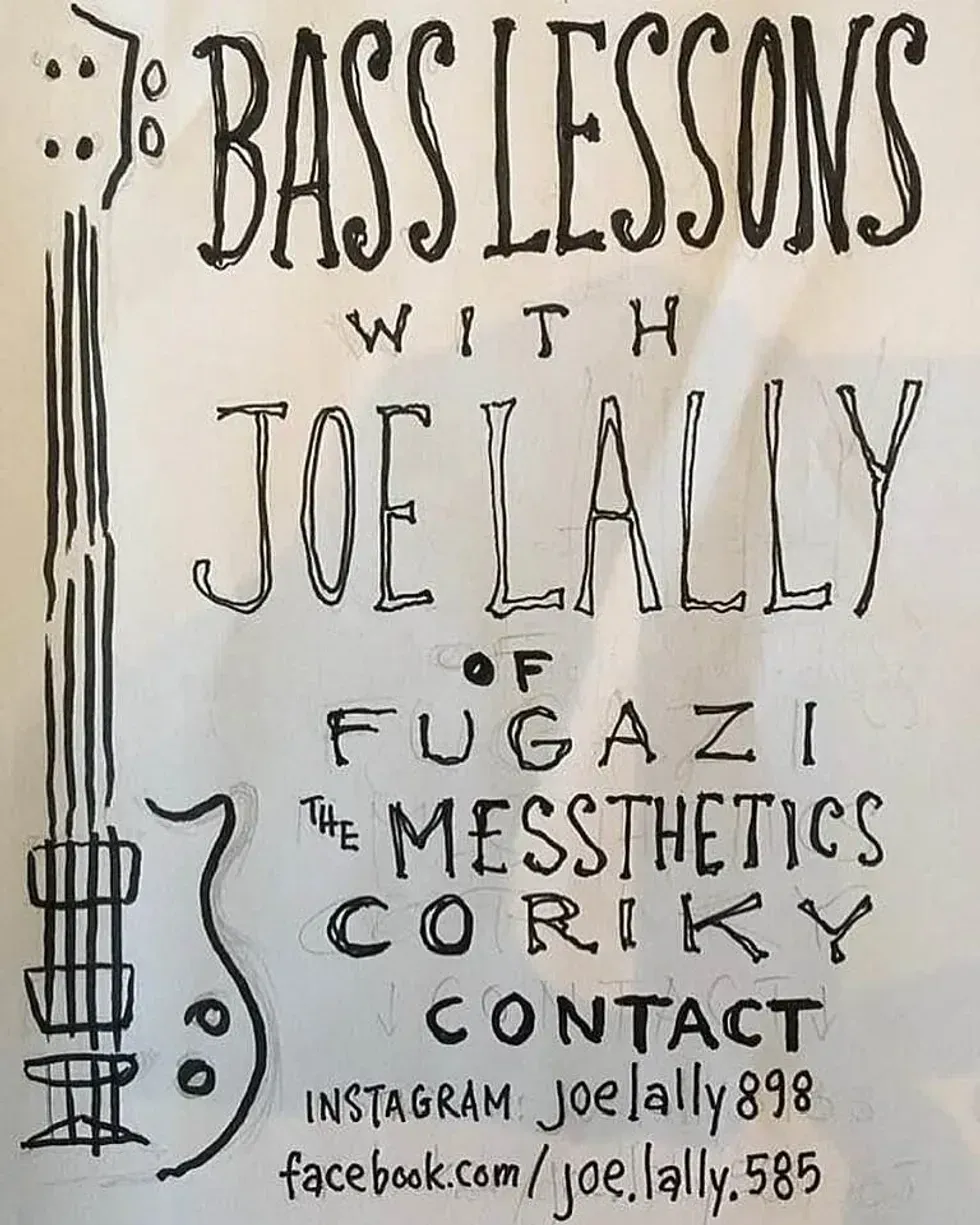
Lally’s humble online flyer.
“I foolishly never picked up a book because I thought it would ruin what I did know. When I told a friend I was teaching theory, he asked, ‘Has it ruined your playing yet?’”
When off the road, Joe worked different jobs in DC’s independent music scene to pay the bills. But when the pandemic lockdown came, he decided to start giving online lessons. He made flyers and posted them on social media.
“I’m not teaching formal theory, which I think is weird and abstract and doesn’t show people everything,” says Joe. “It takes years of learning formally to see how everything is connected to see how this thing is part of that other thing we learned years ago. Most of my students are adults who have been playing but now want to know more about what they’ve been doing.”
But music theory is something we all operate within, says Joe, whether we’re knowledgeable about it or not. “We are engaged in theory. We just may not know it. When you’re playing or writing a song, you might think ‘that note sounds right’ or ‘that note sounds wrong.’ It's because we are relating it to something in theory that we’ve picked up from all the music we’ve listened to.”
Joe recognizes that some people are apprehensive about learning music theory, and he admits that when he was in Fugazi, he was, too. “I foolishly never picked up a book because I thought it would ruin what I did know. When I told a friend I was teaching theory, he asked, ‘Has it ruined your playing yet?’
“But formal study should use your thinking mind, and when you play, you’re outside of thinking. Creativity is outside of thought. You hear about jazz players who practice scales over and over, and what they’re really practicing is the sounds of these things that they want to hear. But when they play, they let go of all of that. So I realized my playing is never going to change. I’m always going to write the way I wrote.”
To immerse yourself in Joe’s creative world, check out the Messthetics’s 2024 album, The Messthetics and James Brandon Lewis, which adds saxophonist Lewis to the trio, bringing together Fugazi’s powerful rhythm section with two players from the creative improv world.
To inquire about bass lessons with Joe Lally, contact him on Instagram at @joelally898.
